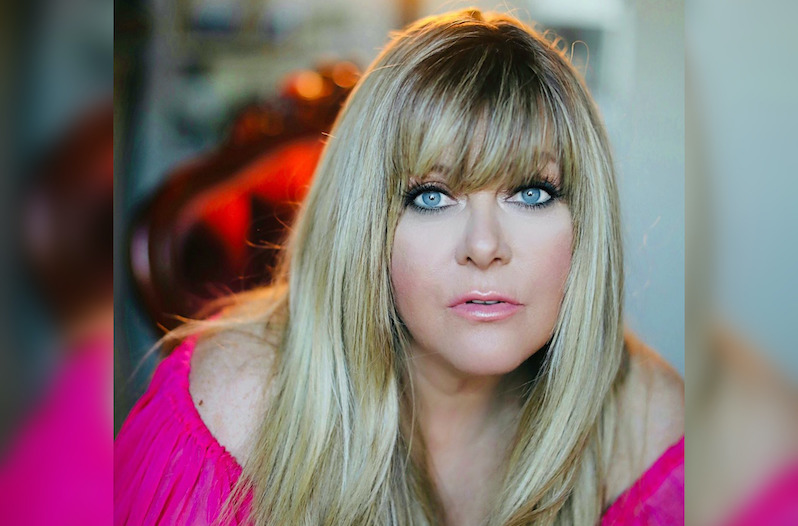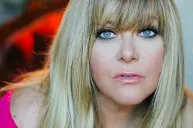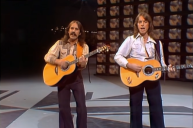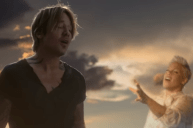Country singer Jamie O'Neal's forthcoming album Now and Then was always going to include "The World Goes On," but circumstances changed the tone and meaning of the song. O'Neal wrote the original lyrics with Shaye Smith and Ilya Toshinksy before the term "social distancing" became commonplace, prompting a few re-writes to turn a breakup song into a more solemn look at society at large.
Videos by Wide Open Country
"It's about the fear that we've all felt," she says. "Especially in the beginning, just being glued to the news and feeling absolutely gripped by that fearful feeling. Then so many weeks later thinking the world does go on. We need to move on. We need to get past this. We need to stay strong and build again and feel like we can get outside and breathe and be normal."
O'Neal and her family live in Nashville, so her vision of a broken world goes back to the March 2-3 tornado outbreak in Middle Tennessee.
"Since I've lived here, which I moved here in '96, I had never seen a tornado hit in the immediate Nashville area like that," she says. "I think that's what the second verse is about. Nashville has jumped in and the community has really jumped in to help everybody and to try to rebuild. It's so hard to go through these life-changing events and not be moved by what people you don't even know are going through."
O'Neal originally wrote the song as a reminder that there's always hope for a relatively pain-free life after a relationship goes sour. Now, she promises a less gloomy tomorrow whether you're itching to see live music again or if you're kept up at night thinking about others' unspeakable losses.
"One of the most important things emotionally is to feel like you can get through it," she adds. "Kind of the easiest thing to do is to pull the covers up and go back to sleep."
Now and Then is slated for a fall release and will be just the fourth album for O'Neal, an Australian singer-songwriter with a past career as one of Kylie Minogue's backup singers.
Her Mercury Nashville debut Shiver (2000) made an immediate impact when its first two singles, "There is No Arizona" and "When I Think About Angels," reached the top of Billboard's Hot Country Songs chart. Beyond their commercial success, the two songs earned a total of three Grammy award nominations.
Before proving to be one of the right artists to fill the gap between the traditional sounds of the '90's and a more pop-friendly new millennium, O'Neal stood her creative ground as others questioned whether elements of her style might've been "too jazzy"-- as if that's even a thing in the genre that brought us Bob Wills, Patsy Cline and Willie Nelson.
"I've always been a person who loves some programming and loops," O'Neal says. "I had that on 'Arizona,' and some people were saying to me, 'I don't think you'll get that on radio.' It sounds too pop or it sounds too jazzy.
"You kind of have to do what you love," she adds. "Your gut instinct has to kick in and tell you what you love to do. If you're always chasing what somebody else does, it's never authentic. I think fans know that. They love authenticity. All of the songs I've written and recorded for this project have been something I authentically wanted to do and chose to do and chose to sing about. Whether I was inspired by what a friend was going through or what I was going through, they are all personal to me."
Five years after debuting on top, O'Neal returned with the album Brave. It outperformed Shiver on the charts and brought O'Neal another Top 5 single ("Somebody's Hero"), so any notions about her being a two-hit wonder simply aren't true. As a matter of fact, O'Neal's star shone bright enough in 2005 for her to sing a version of Reba McEntire and Linda Davis' "Does He Love You" with the genre's newest sensation, Carrie Underwood, for CMT's Greatest Duets special.
There's a much larger gap between Brave and the 2014 covers album Eternal (Shanachie Records), but that was partly by design. O'Neal put her career on pause so she and husband Rodney Good, a professional musician and songwriter, could focus on raising their daughter Aliyah, now a 16-year-old pop artist with her mother's independent streak.
"She likes some country music, like she loves Kacey Musgraves and Miranda Lambert, but there's a lot that she doesn't like and obviously there's a lot that I love about country music, so we're in two totally different places," O'Neal adds. "I just let her do her own thing."
Read More: John Paul White, Rosanne Cash's New Song Raises Funds For Charity
Whether she's working with American Idol winner Laine Hardy as producer of his 2018 EP In the Bayou or avoiding the temptation to win her daughter over with LeAnn Rimes and Martina McBride album cuts, O'Neal instills in younger artists the value of being yourself-- a mindset that positioned O'Neal as a top country artist soon after her big label debut.
"It's great when people know who they are and know where they're not comfortable," she says. "I think it's difficult when an artist comes in and they're used to singing other peoples' songs. They have a tendency to copy those artists. You have to find out who you are as an artist, and again, it goes back to the audience knows what's authentic and what's not. What's made a lot of the big stars that we know like George Strait and Alan Jackson and Tim McGraw is that when their voices come on the radio, you know who they are. They don't sound like anybody else. They sound like themselves."
Now Watch: Remembering Kenny Rogers Songs Through the Years
https://rumble.com/embed/u7gve.v6f8h5/




